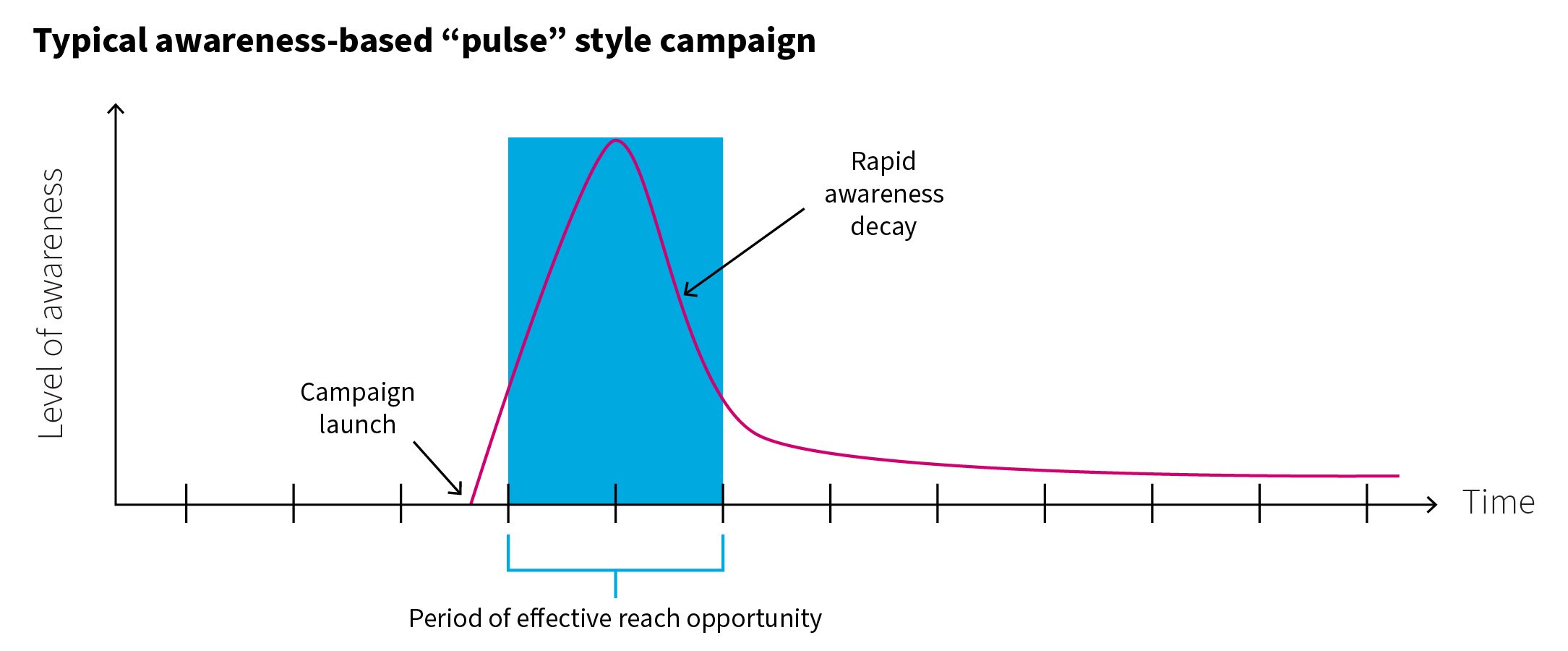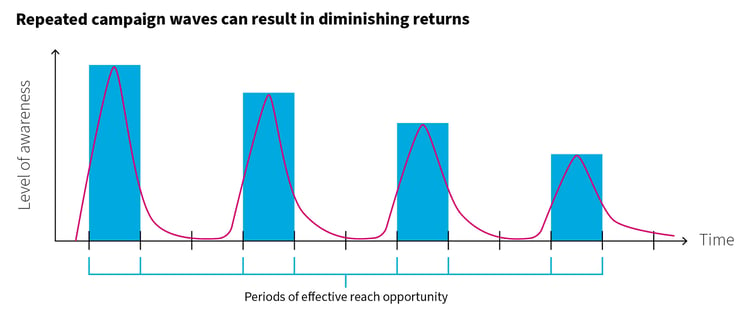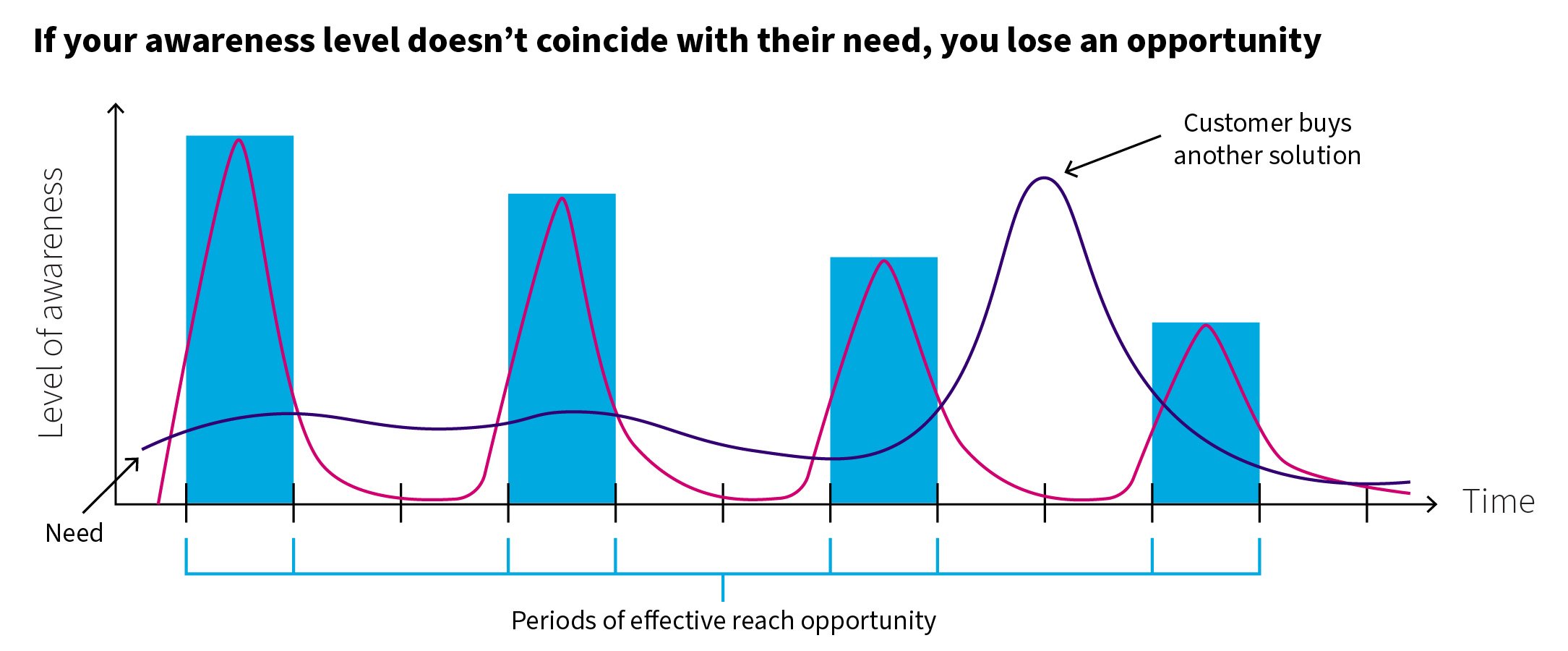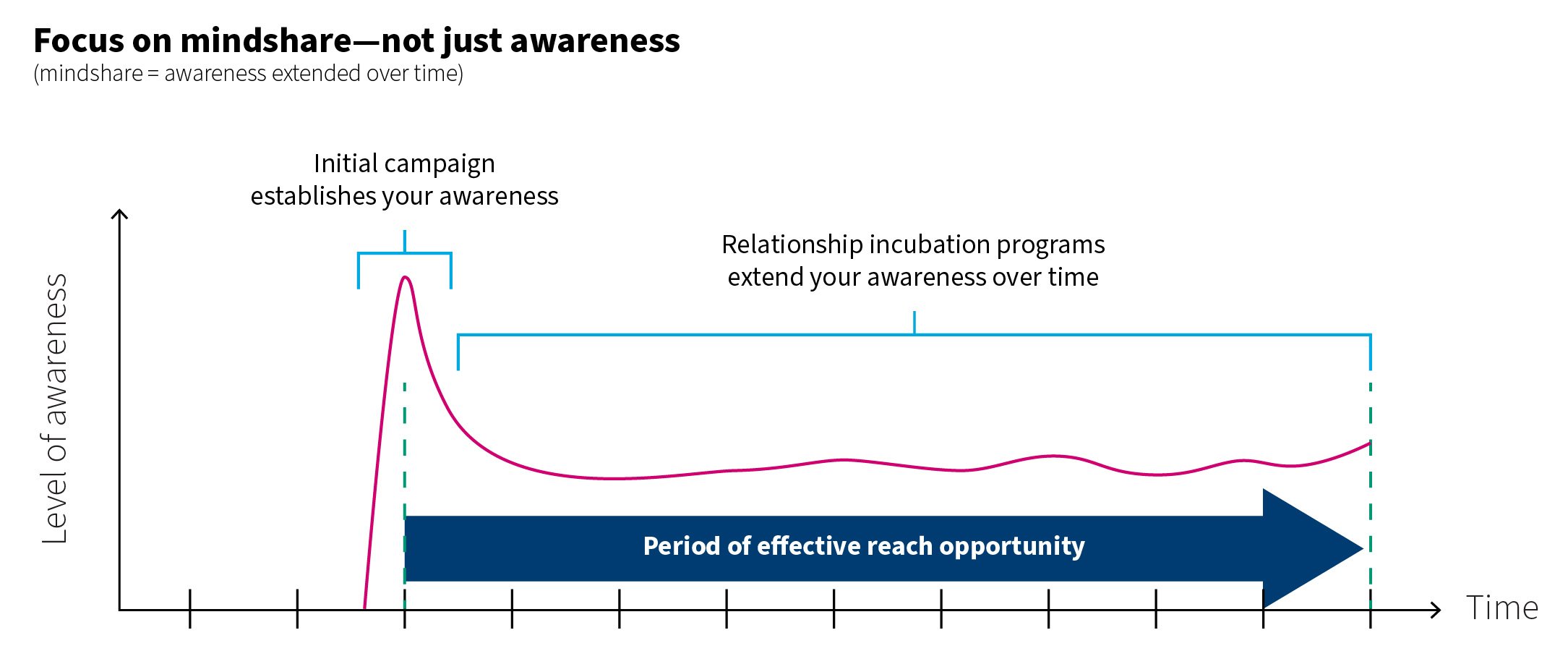When it comes to business partner programs, be the squeaky wheel
November 9, 2015

Awareness focused marketing campaigns are more effective if your products or solutions are prone to immediate, almost impulse-like purchases—and that’s rare for most B2B marketers, especially technology marketers.
The ineffectiveness of B2B campaigns focused solely on generating awareness stems from the simple fact that awareness, while important, can only be measured against a specific point of time. That is, how aware someone is of your product depends on when the measurement of awareness is taken.
If a prospective customer learns of your company and solutions through a blog article, they may remember you for a few days—even a week or two if you’re fortunate. But what if it takes months before that customer begins to realize they have a specific need for your type of product/solution? Will they still remember you (and your primary customer value proposition) when that time comes?
Not likely if the last thing they saw from you was that blog article four months earlier.
Generating awareness takes a lot of energy but typically results in very brief periods of reach opportunity (the period in which the awareness of your product and its primary value proposition remain high). You may launch a campaign that is effective in generating a prospective customer’s awareness, but if you can’t convince that customer to act as soon as possible (by responding to your requested call to action), the reach opportunity window will soon close, and chances are high you’ll never hear from that customer.
Attempting to generate awareness (which is fleeting) is a major flaw in many marketing campaign efforts. Once awareness is generated, it begins to decay quickly (see graphic below).

Rapid awareness decay is why typical “pulse” style outbound marketing campaigns are limited in their effectiveness. The effective reach opportunity period (your window of opportunity in which to encourage customer response/action) closes quickly. If the prospective customer becomes aware of your product and its primary value proposition but doesn’t currently see your solution as a high-priority need at that time, they simply don’t respond.
In these typical pulse-style marketing campaigns, you rely on the fortunate circumstance of reaching a prospective customer and gaining awareness at the exact time when the issue/problem that your product solves happens to be high on their priority list. If you’re lucky, the customer responds to your call to action. When your campaign relies heavily on the luck of timing, it should be no surprise when an outbound awareness campaign achieves a 1–2% response rate—or less.
Even when you launch multiple campaign waves to your target list, there are still only small windows of effective reach opportunity, and such campaigns also typically have diminishing returns.

Multi-wave outbound awareness campaigns still rely on the good fortune that the customer’s awareness of the need for your product coincides with when they are aware of your product and its primary value proposition.
Luck is still a major component of your success strategy here. If the customer becomes aware that they need to solve a critical problem—but at a time when they aren’t aware of your solution and its ability to solve this problem—the customer may have already purchased another solution by the time they become aware of you again.

When you’re trying to generate qualified leads, you need to focus on building mindshare—not just awareness. Generating mindshare requires generating awareness and then maintaining that awareness over an extended period of time.
A mindshare-focused campaign generates the attention and awareness of the customer but then assumes that most of the people you reach (typically 97% or higher) will not be ready to engage with you in a sales-oriented discussion because the issue/problem your product solves is simply not yet a high enough priority.
This looks much like a typical outbound awareness campaign—its primary goal is to identify, qualify, and encourage engagement from interested prospects via a call-to-action request. However, a mindshare-focused campaign has a vital secondary engagement path for those not ready to engage in a sales-oriented conversation.
The secondary offer is not information about your company or products. It is the offer of a useful relationship with you.
The net effect: the mindshare-focused campaign generates awareness—and then continues to extend that awareness over time, not allowing it to decay to near extinction. This expands the effective reach opportunity period.

Key to the success of mindshare-focused campaigns is the secondary offer designed for prospects who are not ready to engage. This involves encouraging the contact to establish a relationship with you through an ongoing series of communications.
More than a lead-nurturing program, we refer to this as relationship incubation. Through a well-designed, carefully synchronized series of outbound marketing initiatives meant to leverage the initial awareness generated among prospective customers, relationship incubation entices customers to establish an opt-in relationship with you that allows you to communicate to them regularly.
To provide your prospects with a valid and attractive reason to establish an ongoing relationship with you, it’s vital they see your relationship as supporting their goals. To gain their trust, you must consistently offer valuable education, support, and insights that make their jobs easier. This can be delivered in the form of newsletters, blog articles, tutorial videos, and other free resources and useful insights from your industry/technology/solution experts.
Successfully focusing on the creation of customer mindshare—not simply awareness—results in no longer depending on the luck of fortunate timing in your outbound marketing initiatives. When you have customer mindshare, the customer is always aware of who you are, what you offer, and what your primary value proposition is—how you best solve the challenge at hand.
Even if months pass between when they first become aware of you and when they realize they have the challenge/problem that your product solves, they will think to reach out to you first and foremost.
That’s the benefit of focusing your marketing efforts on mindshare instead of awareness.
We take pride in a team loaded with smarts, wit, and ideas. If you'd like to have a smarter, wittier inbox filled with ideas each month, subscribe here to the MarketReach Blog, and we will let you know when there is something new you might like!

Need us now? Just want to learn more? We’d love to talk.